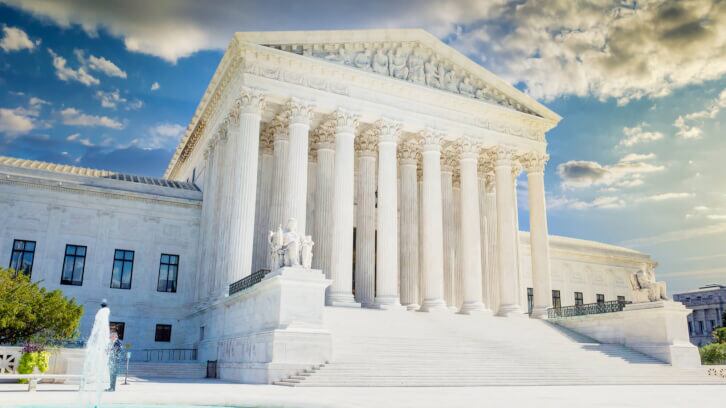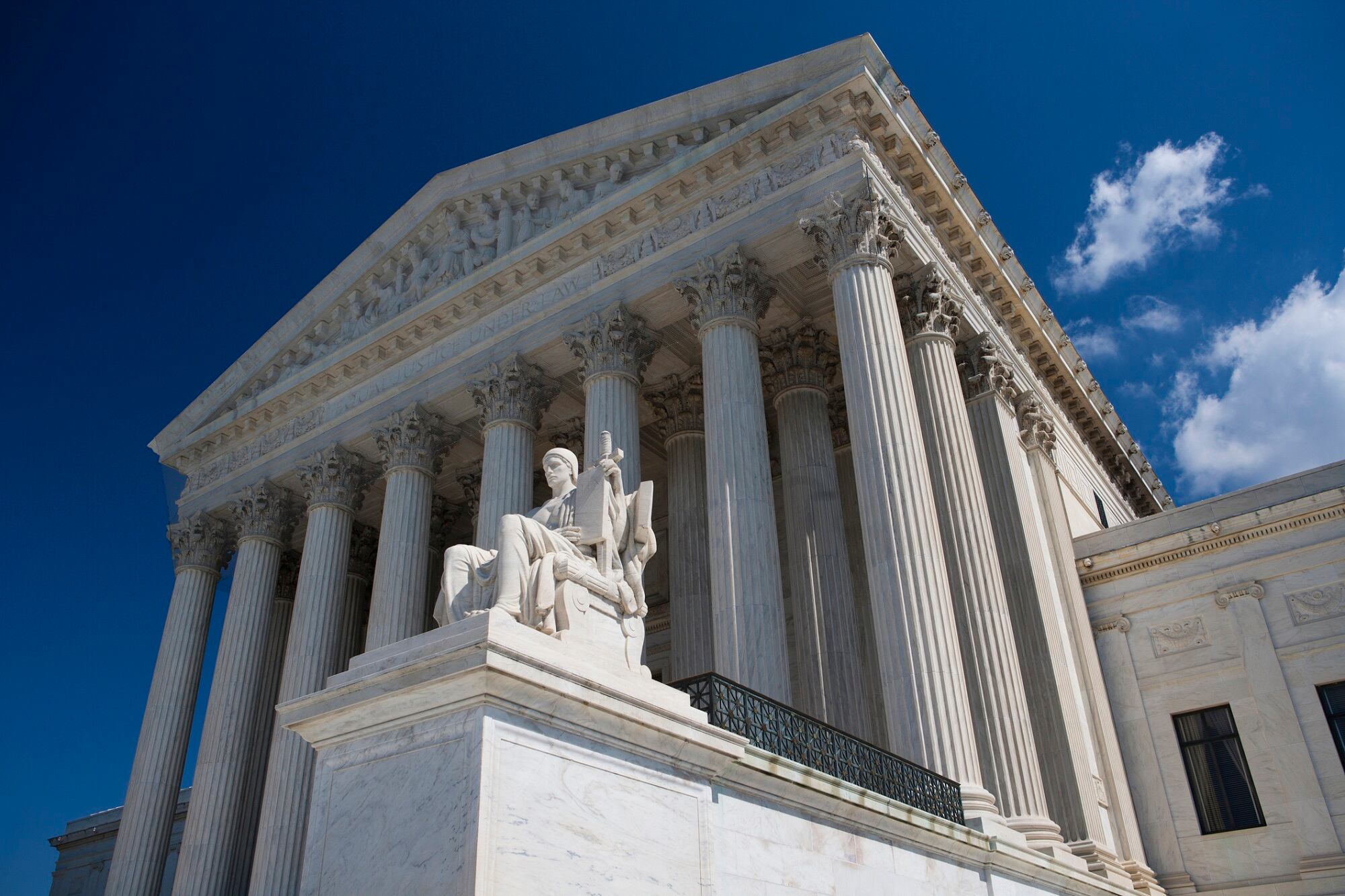The Trump administration faced pointed questions from Supreme Court justices Wednesday and pressure from food industry stakeholders as it defended the president’s use of the International Emergency Economic Powers Act of 1977 (IEEPA) to impose tariffs around the world.
While the oral arguments largely focused on presidential power and its applicability to tariffs, amicus briefs by companies and organizations told the toll tariffs are taking on businesses and consumers.
Critical questions came from both conservative and liberal members of the court on the core legal issue of whether the president has the authority to unilaterally impose tariffs under a national emergency.
The administration has largely justified its tariffs on the grounds that trade imbalances and the influx of fentanyl and opioids threaten national security.
Tariffs have historically been under the purview of Congress, but the administration argued in court that the president has the authority to regulate foreign commerce under IEEPA.
A decision from the court could take weeks or months.
Business weighs in on tariffs
Business leaders, including the US Chamber of Commerce and the National Retail Federation, have argued that the tariffs are hurting US business and consumers.
The power of enabling the president to impose tariffs on anything deemed a national security threat “transcends administrations and the politics of the moment,” the Chamber told the court in an amicus brief.
“If this President is permitted to invoke IEEPA to impose unlimited tariffs to deal with the asserted ‘national emergencies’ of trade deficits and drug trafficking, then future ones will have similarly expansive authority to impose worldwide tariffs based on their own objectives,” according to the Chamber. “It is not hard to imagine another administration declaring that its own political priorities – say, climate change – constitute a ‘national emergency,’ and then invoking IEEPA to impose unlimited tariffs on American businesses in pursuit of this agenda.”
The National Retail Federation said in a statement Wednesday that the on-again off-again tariffs have made business planning and operations “extremely difficult.”
“Tariffs, which are paid by US importers, have had a significant impact on retailers both large and small. We are hopeful that the Supreme Court can help bring clarity to the process by taking up this case to consider the legality of the administration’s use of tariffs under IEEPA,” said NRF Executive Vice President of Government Relations David French. “By hearing this case, the justices will ultimately provide a significant and welcome step toward addressing the considerable uncertainty current trade policies have created for American businesses and consumers across the country.”
Startups hit hard by tariffs
Amicus briefs filed in the case told more personal stories of businesses that said the tariffs have stalled growth and in some cases posed an existential threat to their solvency.
Curry Love, which operates as Mike’s Organic Foods and is headquartered in Boise, Idaho, said in an amicus brief to the court that its organic curries are produced in Thailand for availability of ingredients.
“We would love to make our curries here at home, but these crops do not grow at scale in the US. Tariffs have made it incredibly difficult to sustain our business as the margins in the packaged food industry are slim even without the imposed tariffs, which are now collectively 26% for Thailand,” the company said.
The higher costs led Curry Love to lay off its sales team, suspend advertising and postpone product development. The company is facing closure if business doesn’t improve by the end of the year.
“The IEEPA Tariffs make it impossible to break even without raising prices to the customer, which in many cases isn’t an option. Being a small specialty food brand we are unable to sustain the losses. We have used all of our savings, maxed out credit and borrowed to keep the business afloat,” the company said.
Curry Love included its story in the amicus brief filed by hundreds of small business owners operating under the banner, We Pay the Tariffs, which is urging the federal government to pursue common sense trade policy.
Separation of powers
Justices questioned whether the use of IEEPA gives the president unbridled power to sidestep Congress.
“Congress, as a practical matter, can’t get this power back once it’s handed it over to the President?” asked Justice Neil Gorsuch. “It’s a one-way ratchet toward the gradual but continual accretion of power in the executive branch and away from the people’s elected representative.”
Gorsuch added that handing authority to the president could lead to an executive branch with powers it is unwilling to relinquish.
“You emphasize that Congress can always take back its powers. You mentioned that a couple of times,” Gorsuch said to Solicitor General Dean John Sauer, who represented the administration in the case. “But don’t we have a serious retrieval problem here because once Congress delegates by a bare majority and the president signs it – and, of course, every president will sign a law that gives him more authority – Congress can’t take that back without a super majority. And even then, it’s going to be veto-proof.
“What president is ever going to give that power back? A pretty rare president.”
Tariff tax or regulation
One of the key issues in the case focuses on whether the tariffs are a revenue generator or a regulation. Sauer argued that the tariffs are not a tax. The president, however, has publicly stated that the tariffs are boosting the US economy.
Trump wrote on his social media site, Truth Social, on Tuesday that the case means “life or death” for the country.
“With a Victory, we have tremendous, but fair, Financial and National Security. Without it, we are virtually defenseless against other Countries who have, for years, taken advantage of us. Our Stock Market is consistently hitting Record Highs, and our Country has never been more respected than it is right now. A big part of this is the Economic Security created by Tariffs, and the Deals that we have negotiated because of them,” Trump wrote.
Sauer argued that the intent of the tariffs is not to raise revenue.
“We don’t contend that what’s being exercised here is the power to tax. It’s the power to regulate foreign commerce. These are regulatory tariffs. They are not revenue-raising tariffs,” Sauer said in court.
Justice Sonia Sotomayor said the reality is that the tariffs function as a tax.
“I just don’t understand this argument. It’s not an article. It’s a congressional power, not a presidential power, to tax. And you want to say tariffs are not taxes, but that’s exactly what they are. They’re generating money from American citizens, revenue,” she said.
Sauer said citizens could avoid the tariff costs by buying American-made products that are not subjected to tariff-related price increases.
“If nobody ever pays the tariffs and instead Americans direct their consumption towards American producers and stimulate the rebuilding of our hollowed-out manufacturing base, then the policy is by far the most effective,” he said.
Neal Katyal, former solicitor general under President Barack Obama and lead plaintiff’s counsel, said, “Tariffs are taxes.”
He explained: “They take dollars from Americans’ pockets and deposit them in the US Treasury. Our founders gave that taxing power to Congress alone. Yet, here, the president bypassed Congress and imposed one of the largest tax increases in our lifetimes.”
The issue is a matter of common sense, Katyal added.
“It’s simply implausible that in enacting IEEPA Congress handed the president the power to overhaul the entire tariff system and the American economy in the process, allowing him to set and reset tariffs on any and every product from any and every country at any and all times,” he said.



